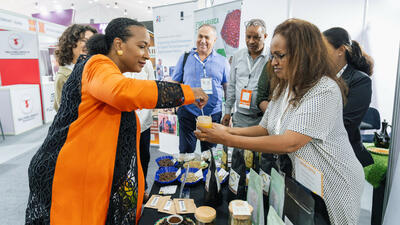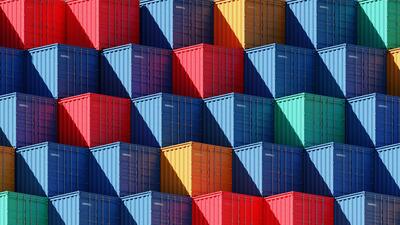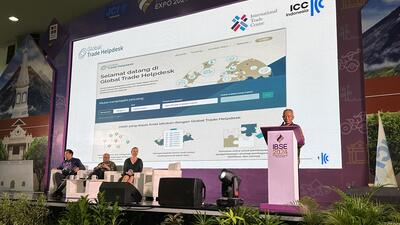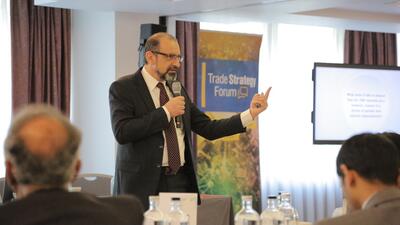
Blog: Food security in Africa threatened by emerging trade barriers
The soaring food price crisis exposes Africa's high dependency on agricultural commodities imports. Both newly imposed trade measures and persistent regional trade obstacles add extra layers on the current threats to the continent’s food security
The war on Ukraine has disrupted cereal supplies worldwide. Together, the Russian Federation and Ukraine account for more than 15% of global cereal exports and almost 20% of global fertilizer exports. Destroyed infrastructure, blocked ports, sanctions and countersanctions, and subsequent trade measures have been pushing food prices to historic peaks.
Cereal prices have increased dramatically since the beginning of the war, as the International Trade Centre’s Market Price Information tool shows. While a ton of French corn cost $297 on 23 February, its price rose to $401 on 23 May[1].
Global food prices were already on the rise before the invasion of Ukraine due to a combination of factors, including: high, global demand during the post-Covid-19 recovery and increased use of certain commodities in biodiesel; lower supply caused by poor harvests; high prices of energy-intensive inputs, particularly fertilizers; and rising international freight costs.
This situation may have devastating consequences for over 1.3 billion African consumers. All countries in Africa, except for Zambia, are net cereal importers. In Benin, all wheat imports come from the Russian Federation and Ukraine[2]. North Africa is also highly dependent on imported cereals, an important portion of which has been sourced from the Russian Federation and Ukraine in the past.
Measures and their consequences
Attempting to protect their domestic markets from further price increases, many economies are closing the doors for exports. By mid-May 2022, 52 countries had enacted temporary export restrictions on food items.
On 11 March of this year, Egypt established a three-month ban on exports of essential food items, including wheat, pasta, flour, lentils, fava beans, and cooking oil. Algeria, also highly dependent on imported wheat, followed suit in banning exports of sugar, pasta, oil, semolina, wheat, and all its derived products. On 13 May 2022, India, the world’s 2nd largest wheat producer announced to prohibit the export of this crop.
Other countries have liberalized the imports of cereals. The Dominican Republic, El Salvador and the Philippines, for instance, have reduced the tariff on basic food products to cushion the impact of rising prices on consumers. On 15 March 2022, Switzerland lowered their import taxes on animal fodder to which cereals are an important ingredient.
These export restricting measures and some of the import-liberalizing measures, especially when imposed on products for non-human consumption, can backfire and push global prices even higher.
In a recent statement, United Nations Secretary-General António Guterres emphasized the need to avoid restrictive trade measures: "We must urgently reduce the pressure on markets by increasing supplies of food and fertilizers. There should be no restrictions on exports, and surpluses must be made available to those most in need." [3]
Strengthening intra-African trade ties
In addition to the rise in trade measures of temporary nature, companies in Africa that export and import agricultural commodities will face their usual trade barriers. International Trade Centre data finds that 70% of African food exporters face challenges related to non-tariff measures, which are the official requirements traders need to fulfil when trading. One-third of these reported obstacles depend solely on the exporting country. This means that African countries hold the key to removing one-third of the trade barriers that companies are dealing with daily.
The African Continental Free Trade Area (AfCFTA) is an opportunity to strengthen intra-African ties and build resilience to external shocks in food supplies. Tariff liberalization and ensuring the transparency of regulations and certification procedures are actions that can boost regional value chains.
Companies interviewed in a recent Value Chains Diagnostic[4] that ITC implemented in Africa are optimistic: 63% say they expect a positive impact from the AfCFTA.
"I believe it would be possible for Africa to become self-reliant in the food sector in a not so far future. We have some know-how, we have lands. We need to reinforce our African connection and look inside ourselves to see our full potential,” says a representative of the baby food sector in São Tomé e Príncipe.
Investments into regional agri-food value chains will be crucial to forging a shield against external supply challenges and fostering sustainable growth. Africa has indeed an abundance of fruits and vegetables, fish, oil seeds, roots and tubers and other agricultural products. To unlock this potential, it is imperative to tackle constraints in accessing relevant machinery and technology, including for food dehydration and processing. Expanding the access to laboratories and testing facilities for conformity and quality assessments are also critical for meeting relevant food safety standards.















